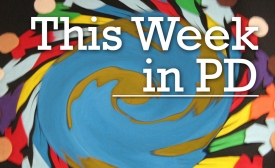gender equality
Women in Africa spend 40 billion hours a year walking to get water, according to the United Nations. The practice dates back generations, can be extremely dangerous and prevents communities from reaching any sort of gender parity. A world away, on her farm in Iowa, singer/songwriter Lissie is trying to do something about it.
Women’s empowerment may not replace climate change as the next top priority on the global agenda. But behind the emergence of politicized gender issues, reshuffled coalitions of political and economic interests among major powers are underway. China will undoubtedly be an active leader for designing international governance focused on women’s empowerment.
While the world has made great strides toward gender equality over the last several decades, major disparities between men and women still exist. And women, from all walks of life, still face disadvantages. In the United States, we are yet to see a female president, and among the United Kingdom, Germany, and Australia, the tally remains at one.

Exploring the power of PD to empower and advocate for marginalized communities.
Mexico is joining the fight for gender equality with the #HeForShe campaign. The Mexican Interior Ministry announced their commitment to NosotrosPorEllas campaign at a launch event with UN Women Mexico on February 22. The international initiative encourages men and boys to participate in creating a gender equal world.
To reverse this trend, Women in Europe for a Common Future, together with over 600 women’s civil society organizations from 100 countries, is working to ensure that women’s equality is an integral part of the Sustainable Development Goals (SDGs) and, in particular, that Goal 5 – which focuses on gender equality and the empowerment of women and girls – is achieved.
The most widely watched television show on earth, China’s New Year Gala, attracted some 690 million viewers last week to variety show that was criticized as “discriminatory” and “spectacularly misogynistic” -- peppered with jokes at the expense of women.
When it comes to the opinion-makers and experts we listen to on matters of foreign policy, it's neither new nor enough to ask: where are the women? We also have to ask where they aren't.We need not go very far for an answer: The Washington Post recently compiled data from events hosted by six leading think tanks in Washington, DC. They found that not a single woman spoke at more than 150 events on the Middle East. Of the 232 total events included in the Post's data set, fewer than 25 percent of the speakers were women.







